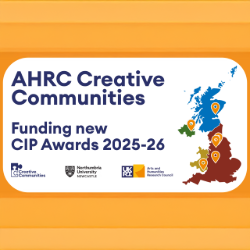-
Study
-
Undergraduate
- UCAS Clearing & Confirmation 2025
- Application Guides
- UCAS Exhibitions
- Extended Degrees
- School & College Outreach
- Information for Parents
-
Postgraduate
- Application Guide
- Postgraduate Research Degrees
- Flexible Learning
- Change Direction
- Register your Interest
-
Student Life
- Students' Union
- The Hub - Student Blog
- Accommodation
- Northumbria Sport
- Support for Students
-
Learning Experience
- Real-World Learning
- Research-enriched learning
- Graduate Futures
- The Business Clinic
- Study Abroad
-
-
International
International
Northumbria’s global footprint touches every continent across the world, through our global partnerships across 17 institutions in 10 countries, to our 277,000 strong alumni community and 150 recruitment partners – we prepare our students for the challenges of tomorrow. Discover more about how to join Northumbria’s global family or our partnerships.
View our Global Footprint-
Quick Links
- Course Search
- Undergraduate Study
- Postgraduate Study
- Information for Parents
- London Campus
- Northumbria Pathway
- Cost of Living
- Sign up for Information
-
International Students
- Information for International Students
- International Events
- Application Guide
- Entry Requirements and Education Country Agents
- Global Offices
- English Requirements
- English Language Centre
- International student support
- Cost of Living
-
International Fees and Funding
- International Undergraduate Fees
- International Undergraduate Funding
- International Masters Fees
- International Masters Funding
- International Postgraduate Research Fees
- International Postgraduate Research Funding
-
International Partners
- Agent and Representatives Network
- Global Partnerships
- Global Community
-
International Mobility
- Study Abroad
- Information for Incoming Exchange Students
-
-
Business
Business
The world is changing faster than ever before. The future is there to be won by organisations who find ways to turn today's possibilities into tomorrows competitive edge. In a connected world, collaboration can be the key to success.
More on our Business Services -
Research
Research
Northumbria is a research-rich, business-focused, professional university with a global reputation for academic quality. We conduct ground-breaking research that is responsive to the science & technology, health & well being, economic and social and arts & cultural needs for the communities
Discover more about our Research-
Quick Links
- Research Peaks of Excellence
- Academic Departments
- Research Staff
- Postgraduate Research Studentships
- Research Events
-
Research at Northumbria
- Interdisciplinary Research Themes
- Research Impact
- REF
- Partners and Collaborators
-
Support for Researchers
- Research and Innovation Services Staff
- Researcher Development and Training
- Ethics, Integrity, and Trusted Research
- University Library
- Vice Chancellors Fellows
-
Research Degrees
- Postgraduate Research Overview
- Doctoral Training Partnerships and Centres
- Academic Departments
-
Research Culture
- Research Culture
- Research Culture Action Plan
- Concordats and Commitments
-
-
About Us
-
About Northumbria
- Our Strategy
- Our Staff
- Our Schools
- Place and Partnerships
- Leadership & Governance
- University Services
- History of Northumbria
- Contact us
- Online Shop
-
-
Alumni
Alumni
Northumbria University is renowned for the calibre of its business-ready graduates. Our alumni network has over 250,000 graduates based in 178 countries worldwide in a range of sectors, our alumni are making a real impact on the world.
Our Alumni - Work For Us
What will I learn on this module?
This module will enable you to design, deliver and evaluate individualised teaching programmes to meet the specific needs of pupils with dyslexia that you assessed in the first module.
How will I learn on this module?
You will learn through lectures, seminars and independent learning. The lectures will cover theories and concepts that will enable you to participate in a series of guided tasks and exercises and practice tasks. You will work on these during seminars and practical sessions in computer labs which are fully equipped with the last industry-standard software.
How will I be supported academically on this module?
Support will include feedback from tutors during seminars and tutorials. In addition, tutors will respond to your questions via the modules’ discussion board on Blackboard Ultra VlPortal so that the whole group can benefit
What will I be expected to read on this module?
All modules at Northumbria include a range of reading materials that students are expected to engage with. Online reading lists (provided after enrolment) give you access to your reading material for your modules. The Library works in partnership with your module tutors to ensure you have access to the material that you need.
What will I be expected to achieve?
On successful completion of the module you will be able to:
Knowledge & Understanding
1. Demonstrate knowledge of good practice in "Quality First" teaching of literacy.
2. Demonstrate a critical understanding of the principles underlying structured, sequential, multi-sensory teaching.
3. Demonstrate a critical understanding of contemporary models and theories of ‘typical development’ of language literacy and numeracy skills and how dyslexic learners may differ from those who are not experiencing difficulties in acquiring these skills
4. Demonstrate an understanding of the social, emotional, behavioural and community issues and their implications for learners with SpLD (dyslexia) and their families.
5. Demonstrate knowledge of the methods and principles of staff development for an inclusive curriculum.
6. Understand and critically appraise the role of ICT in the screening and support of pupils with SpLD; a range of technical aids for teaching, writing and numeracy; support and access to learning.
Intellectual, Professional Skills & Abilities
1. Critically appraise and reflect on a range of learning
strategies and structured, sequential, multi-sensory
language and numeracy teaching programmes.
2. Design, deliver and critically evaluate appropriate
programmes in relation to the assessed needs of a
range of learners with SpLD (dyslexia)
3. Review classroom organisation to facilitate individual
learning within the normal curriculum framework.
Personal Values Attributes
1. Communicate effectively with teachers, parents and
other professionals by verbal and written reports on
the needs and achievements of learners with
dyslexia which will be submitted as part of your summative assessment task.
How will I be assessed?
Formative Assessment:
3 hours of your teaching will be observed. You will need to digitally record this.
Feedback:
You will receive verbal and written feedback from the tutor.
Summative Assessment:
The final assessment will take the form of a specialist teaching diary 20-30 hours of evaluated, specialist teaching, at least half of that time should be 1:1 with the same pupil. The remaining hours may be with 2 different pupils, one of which could be taught in a small group.
(4500 words)
MLOs: KU1-6; IPSA1-3, PVA1
Feedback:
Using the elaborated marking scale and subject specific criteria, you will receive written, graded feedback.
Pre-requisite(s)
Module: TE7034
The Theory and Practice of Identification and Assessment for PG Cert Dyslexia only
Co-requisite(s)
None
Module abstract
This module will enable you to enhance your practice and skills in developing a range teaching and learning strategies, with particular emphasis on the underlying principles of structured, sequential, multi-sensory teaching. In addition, you will have the opportunity to explore the social, emotional, behavioural and community issues and their implications for learners with SpLD (dyslexia) and their families. You will also have the opportunity to consider and explore the methods and principles of staff development for an inclusive curriculum.
Course info
Credits 30
Level of Study Postgraduate
Mode of Study 1 year Full Time
1 other options available
Department Social Work, Education and Community Wellbeing
Location Coach Lane Campus, Northumbria University
City Newcastle
All information is accurate at the time of sharing.
Full time Courses are primarily delivered via on-campus face to face learning but could include elements of online learning. Most courses run as planned and as promoted on our website and via our marketing materials, but if there are any substantial changes (as determined by the Competition and Markets Authority) to a course or there is the potential that course may be withdrawn, we will notify all affected applicants as soon as possible with advice and guidance regarding their options. It is also important to be aware that optional modules listed on course pages may be subject to change depending on uptake numbers each year.
Contact time is subject to increase or decrease in line with possible restrictions imposed by the government or the University in the interest of maintaining the health and safety and wellbeing of students, staff, and visitors if this is deemed necessary in future.
Useful Links
Find out about our distinctive approach at
www.northumbria.ac.uk/exp
Admissions Terms and Conditions
northumbria.ac.uk/terms
Fees and Funding
northumbria.ac.uk/fees
Admissions Policy
northumbria.ac.uk/adpolicy
Admissions Complaints Policy
northumbria.ac.uk/complaints









